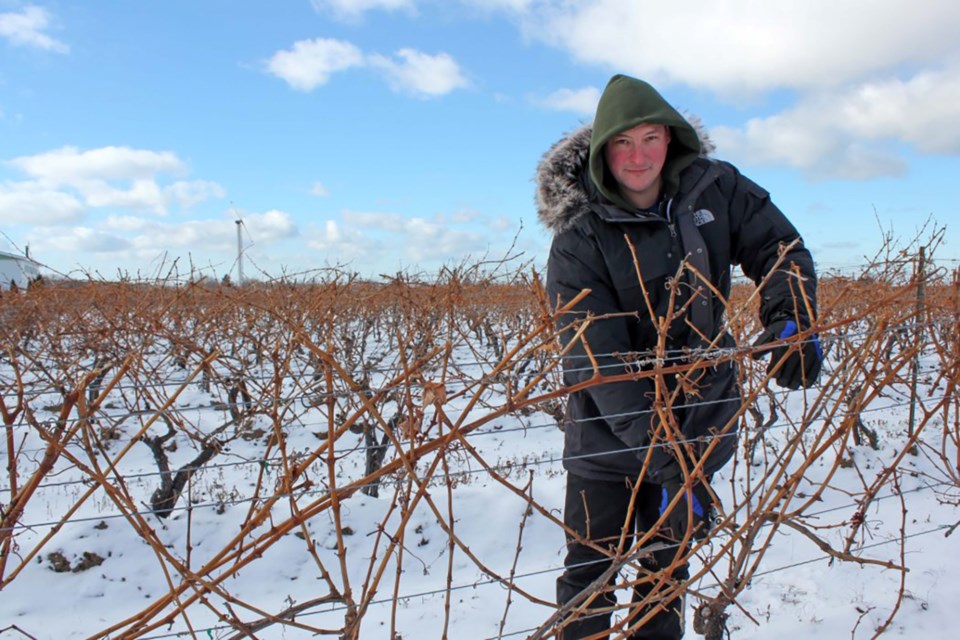NEWS RELEASE
BROCK UNIVERSITY
*************************
While some may speculate rising temperatures could be a positive for Canada’s cool climate wine-growing regions, unpredictable weather patterns created by the shift can have drastic implications on wine production.
However, researchers at Brock’s Cool Climate Oenology and Viticulture Institute (CCOVI) are working to help Canadian producers build resiliency strategies into their operations.
CCOVI researcher Jim Willwerth says viticulture is highly impacted by climate, as it affects both yields and taste of the wine due to the ‘terroir effect.’
“Even though weather may be warming and our overall winter weather may not be as cold on average compared to historical data, volatility and extremes can significantly impact production,” he says. “Erratic weather can have major influences on grapevine dormancy and cold tolerance. Thus, when coupled with extreme cold temperatures, grapevines can be more susceptible to freeze injury.”
Willwerth, whose research program focuses on grapevine cold hardiness physiology and understanding how to maximize cold hardiness in Vitis vinifera, is also an assistant professor of Biological Sciences at Brock and trains students learning about oenology and viticulture at the University.
He says there are a number of factors to consider as producers look to mitigate the impacts of climate change in the vineyard.
“Grapevine material that is better adapted to the local climate will fare better, including appropriately matching cultivar, clone and rootstock to site conditions,” Willwerth says. “Greater resiliency to climate fluctuations and extremes through the use of quality plant material and applying plant growth regulators may prove to be a viable way to reduce losses in production due to weather and improve or maintain quality in a changing environment.”
Willwerth will present his research findings as part of the 2023 CCOVI Lecture Series. The Brock and wider community are invited to join the lecture “Improving resiliency in grapevines to avoid freeze damage in a changing climate” on Wednesday, March 15 at 2 p.m. in Mackenzie Chown Complex H313 or online via livestream.
*************************



